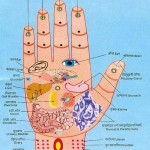 What is Rosacea?
What is Rosacea?
Rosacea is an inflammatory skin condition where the cheeks, nose, chin or the forehead are chronically reddened, and also prone to welts, similar to acne. Rosacea can be treated, and if treated early enough it may not advance, and may even recede. In sever cases there might even be a permanent thickening, and redness on the skin especially on the nose.
Who Gets Rosacea?
Women are more likely to have rosacea than men. Although, men who do get rosacea usually have more severe cases. Rosacea doesn’t usually strike during adolescents.
Most people will get rosacea in their thirties and forties. Anything that dilates blood vessel can cause an outbreak. The most common triggers are; spicy foods, alcohol, hot liquids, coffee, extreme temperatures, fatty foods, stress, and harsh wind. Each time you are exposed to an element that triggers an outbreak, which causes your blood vessels to expand your skin will lose some elasticity so it is important to keep your exposure to these triggers to a minimum. Doctors are able to identify things that trigger rosacea, but the true reason behind it is still a mystery. Studies do suggest however that an underlying digestive problem could be a cause.
What are the Symptoms of Rosacea?
The symptoms of rosacea are red pimples or welts, as well as reddens across the cheeks, nose, forehead, and chin.
What are the Root Causes of Rosacea?
Food allergies, low levels of stomach acid, and a diet high in fat, and low in fiber are common causes. As well as repeated exposure to triggers such as; harsh wind, sunlight, and alcohol. Hormone imbalance, and a reaction to synthetic hormones can cause rosacea. Nutritional deficiencies especially B vitamins, have been linked to rosacea. Dysbiosis, or an imbalance of bacteria in the gut has also been sited as a cause.
Natural Remedies.
Eating a diet high in fiber, and raw produce is a great place to start to treat your rosacea. Many people notice a drastic improvement in their skin when they clean up their diet. Green leafy vegetables are high in trace minerals. Avoiding food that trigger an outbreak is an obvious way to reduce, or limit your rosacea.
|
|
Digestive Enzymes– Take as directed. These enzymes will help with your digestion, which is vital for Rosacea. |
|
|
Betaine hydrochloride– Take one to three capsule with each meal. Reduce your dosage is you notice a warming sensation. Betaine Hydrochloride improves stomach acidity, and digestion. |
|
|
Vitamin B Complex– Take a 50 mg B complex twice daily. B vitamins improve rosacea. |
|
|
Burdock Root– Take 300 mg three times a day. Burdock root improves detoxification, and hormone imbalance. |
|
|
Probiotic– Take a probiotic that has at least 4 billion active organisms twice a day. Once in the morning and once before bed on an empty stomach. This will help to restore good bacteria in your gut, and improves your skin as well. |
*Please check with your doctor before taking any supplements, and also read the warning labels on each product, especially if you are pregnant or breast-feeding. Also read the labels carefully when giving your child any natural supplement, to ensure that it is safe to give a child.










